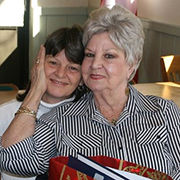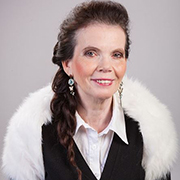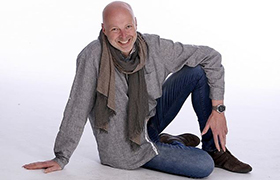Eаr аnd Eуеѕ at 60+
Hearing loss can be long lasting or short-lived. It usually develops gradually as you age; however, at times it can occur without warning. Consult your doctor if you detect any issues with your hearing so that you can find out the reason and obtain suggestions on treatment.
Symptoms and signs of hearing loss
Sometimes it is hard to recognize whether you are experiencing loss of hearing.
Usual symptoms are:
- Straining to hear other individuals clearly and not comprehending what they say, particularly in noisy areas
- You are unable to hear what someone said the first time and ask them to repeat
- Listening to music or watching television when the volume is loud
- The need to pay strict attention to hear what other individuals are saying, which can be taxing or stressful
- The symptoms can vary a bit if you are just experiencing hearing loss in one ear or if the hearing loss affects a young kid
When should you seek medical assistance?
You can obtain help from your GP if you believe you are going through hearing loss. If you lose our hearing all of a sudden, (in one ear or both), contact NHS 111 or your GP immediately. You may note that your hearing or your kid’s hearing is disintegrating with time. If this happens, set up an appointment to visit your GP. Your doctor is going to ask you about your symptoms and examine the interior of your ears with the use of a small hand-held torch featuring a magnifying lens. They can also carry out some simple examinations of your hearing. If required, they can recommend a specialist for additional hearing examinations.



Reasons for Hearing Loss
There are a lot of different reasons for hearing loss. For instance: An ear infection, earwax, a burst, Meniere’s disease or perforated eardrum may cause unexpected loss of hearing in one ear. Sudden loss of hearing in two ears might be because of harm from a deafening noise or taking particular medication that can impact hearing. Losing hearing slowly in one ear might be caused by something in the ear like fluid (glue ear), an accumulation of skin cells (cholesteatoma) or a bony growth (otosclerosis).
The slow loss of hearing in both ears is usually triggered by aging or contact with loud sounds for many years. This might offer you a clue on why hearing loss takes place. But, ensure that you consult a GP to obtain a proper diagnosis. It is not possible at all times to recognize an apparent cause.
Hearing Loss Treatments
At times, the loss of hearing improves on its own; alternatively, medication or a simple procedure may be used to treat it. For instance, earwax can be removed or made soft with eardrops. However, other kinds, like the gradual loss of hearing, which usually occurs with age, might be irreversible. In cases like these, treatment can assist to salvage much of the remaining hearing. You can use the following:
Hearing aids: Numerous varied kinds can be accessed privately or on the NHS.
Implants: Tools that are linked to your skull or set in your inner ear, if hearing aids are not appropriate.
Varied methods of communicating like lip reading or sign language.

Avoiding hearing loss
It is not possible always to prevent hearing loss; but some simple practices exist that you can observe to lower the danger of destroying your hearing.
Examples:
- Avoid setting a loud volume on your radio, music or television
- Utilize headphones that restrict most of the noise from outside, rather than increasing the volume
- Wear ear protection (for instance, ear defenders) if you work in surroundings that are noisy. Examples are a building site or a garage workshop. Special vented earplugs, which let some noise in, are available for musicians as well
- Utilizing ear protection at noisy concerts and other functions where there is a loud noise
- Avoid putting things inside your ears, like cotton buds, cotton wool, fingers, tissues and cotton wool
Tips for eye health for 60+
Due to the changes in our eyesight as we grow old, the majority of us shall require wearing contact lenses or glasses by the time we reach 60+. If you take eye tests often, wear the appropriate lenses and take care of your eyes, there are improved chances of you maintaining a clear vision.
Have your eyes checked regularly
An eye exam is not only ideal for examining whether your glasses are updated. It is also an essential exam on your eyes’ health. An eye exam can detect eye ailments like cataracts and glaucoma and general health issues like high blood pressure and diabetes. Fortunately, if you are 60 or more, you can get a free NHS eye (sight) exam every time you require one. It is usually every couple of years; however, in some instances, it can be more. Your optometrist shall be in a position to give you suggestions on the number of times you require examination. If you are unable to get out of your house due to disability or illness, you can undergo an eye exam at home.
Wear the correct lenses
An eye exam shall determine whether you require another prescription for your contact lenses or glasses. Wearing the appropriate prescription lenses is vital. It shall enhance your life quality and lower the danger of accidents like falls. Get an optician in the locality.



How to maintain your eyes’ health
Apart from having a regular checkup of your eyes and wearing the appropriate glasses, you can take some steps to sustain the optimal health of your eyes:
Observe healthy eating: Consuming a diet that is healthy and balanced is vital for your eyes. Eating a lot of fruit and vegetables will have a good impact on your general health and might assist to shield against some diseases like cataracts and AMD (age-related macular degeneration). Study tips on how to observe a diet that is healthy and balanced.
Wear sunglasses: Powerful sunlight can harm your eyes and might raise your susceptibility to cataracts. Wear contact lenses or sunglasses with an integrated UV filter to shield your eyes from dangerous rays. Seek more knowledge about shielding your eyes (as well as skin) from the sun.
Stop Smoking: Smoking can elevate your prospects of getting illnesses like AMD and cataracts. Learn how you can get assistance from the NHS to stop smoking.
Maintain a weight that is healthy: Having excessive weight raises your chances of diabetes, which can cause loss of sight. Find out whether your weight is healthy.
Use adequate lighting: To see adequately, the light your eyes require is three times as much when you are 60, compared to when you were 20. Raise the daylight in your house by drawing the curtains and maintaining cleanliness of your windows. Ensure you have adequate electric lighting also, particularly at the bottom and top of the stairs to have a clear view of the steps. For working or reading, utilize a direct light from an adjustable table lamp, placed in a way that the page does not reflect light and lead to glare.
Work Out
Adequate circulation and oxygen intake are vital for our eye health. Working out frequently stimulates these two. Study more about how much you need to work out.
Get enough sleep: When you are asleep, your eyes continuously lubricate and irritants like smoke or dust that might have built up during the day are cleaned out.
Eye Issues as you age
Growing older raises your tendency of experiencing some eye issues:
Complications in reading
Eye muscles begin to grow weak from 45 years of age. This aging process is natural, and all of us go through it. By the time you reach 60, it is possible that you shall require other reading glasses or an extra to your prescription lenses (varifocals or bifocals).
Floaters
These small spots or specks, which drift across your vision, are usually harmless. In case they continue, consult an optician since they might be a symptom of an existing health problem.
Cataracts
They can be recognized easily with an eye exam. This gradual clouding of the lens of the eye is very prevalent in 60+. An uncomplicated operation can repair sight.
Glaucoma
It is linked to a rise in eye pressure, which can destroy the optic nerve; it connects the eye to the brain. If glaucoma remains untreated, it creates tunnel vision and in the end, blindness. But, if it is recognized early enough, eye drops can be used to prevent these complications.
Macular degeneration
It is a retina illness caused by growing old. The retina entails the nerve tissue linking the rear of your eye. Two kinds of macular degeneration exist. The first type is known as dry macular degeneration, which worsens gradually. The other kind becomes worse very fast. It should be handled as a hospital eye unit emergency for urgent treatment.






